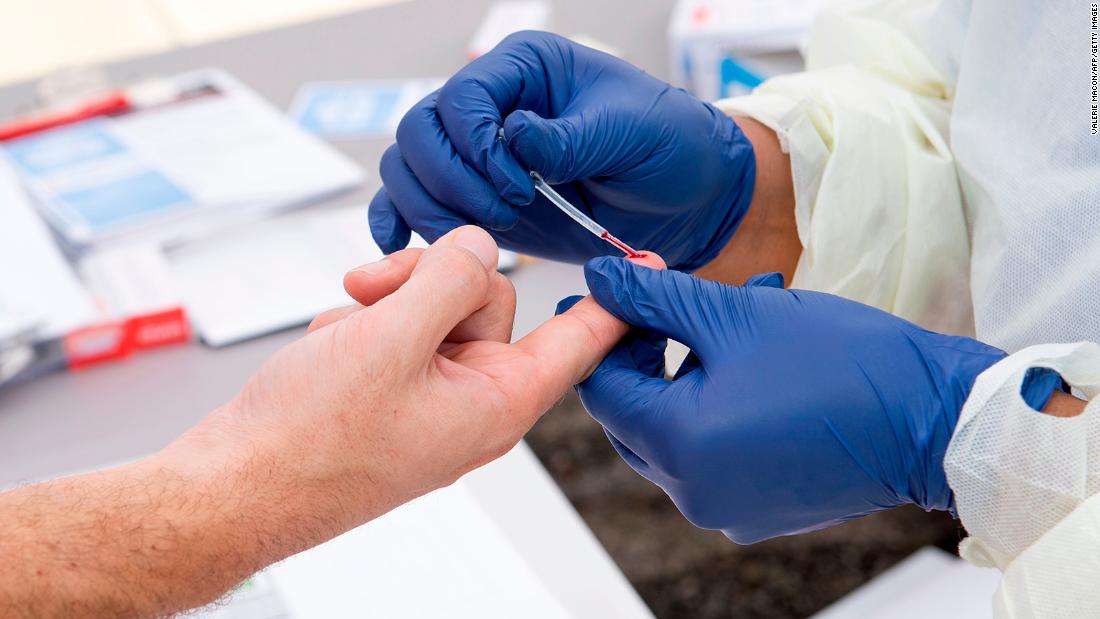Dr. Huerta explains what phase of the pandemic is being experienced in the US 1:42
(CNN) --
Nearly 60% of adults and 75% of children have antibodies that indicate they've been infected with COVID-19, according to new data from the US Centers for Disease Control and Prevention. (CDC).
The data comes from an ongoing study of blood samples sent to commercial laboratories across the United States.
As of early December, an estimated 34% of Americans had antibodies indicating they had been infected with the virus that causes Covid-19.
At the end of February, after the avalanche of cases caused by the omicron variant, that figure had risen to 58%.
"The biggest jump in antibody detection was among children and adolescents," said Dr. Kristie Clarke, a pediatrician who led the study for the CDC.
Moderna's First Bivalent COVID-19 Booster Vaccine Induces Greater Antibody Response Than Original Booster, Company Says
In February, approximately 75%, that is, 3 out of 4 children under the age of 18, had developed antibodies against covid-19, according to the study.
The smallest increase occurred among adults age 65 and older;
The CDC estimates that 33% of the elderly have been infected with covid-19.
However, it is not clear what these test results mean for personal or community protection against future infections.
advertising
"We don't yet know how long infection-induced immunity will last, and we can't know from the study, again, whether all people who tested positive for SARS-CoV-2 antibodies still have protection against their previous infection." Clarke said Tuesday.
For that reason, the CDC says it remains important for all Americans to stay up-to-date on their COVID-19 vaccinations, receiving the recommended shots and boosters.
However, Clarke says, for people who have been infected in the last three months, "they may be able to wait for their second booster dose."
Estimates are based on random, anonymous testing of blood samples sent to commercial laboratories in the United States.
The tests measure the antibodies produced against parts of the virus that causes covid-19;
these antibodies are not generated by vaccines, so the tests are used to estimate what percentage of the population has been infected by the SARS-CoV-2 virus.
The CDC says that the antibodies they measure for the study remain positive for at least two years after infection, so the study should capture infections that have occurred since the start of the pandemic.
Clarke said the CDC does not recommend that people get an antibody test.
"It's not something we recommend on an individual level," he said, "because it doesn't change our advice on what to do," such as staying up-to-date on vaccinations and discussing other prevention measures with your doctor.
The study comes at a time when the most contagious new variants, BA.2 and BA.2.12.1, are dominating transmission in the US and causing a new surge in cases and hospitalizations.
New versions of the omicron variant outperform the BA.2 subvariant
Dr. Rochelle Walensky, director of the CDC, said Tuesday that the agency is paying close attention to Covid-19 cases in the Northeast.
"There are some areas of the country, especially in the northeast, where we're seeing a higher number of cases and we're starting to see some hospitalizations," he said.
Walensky said health authorities have not seen the numbers rise to the level that might have been expected early in the pandemic, "thanks, I think, to a lot of community protection" and to vaccinations.
"But this is something we have to watch carefully," he said.
AntibodiesCovid-19

